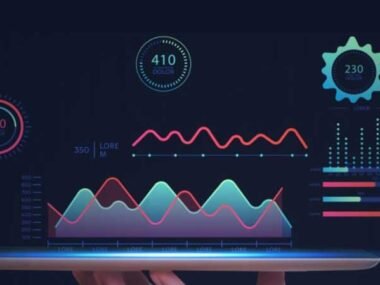Machine learning and data science are different concepts that fall within the field of technology. In today’s fast-paced digital world, both professions are in high demand and offer substantial earning potential. But deciding which one is perfect for you can be overwhelming.
A career in data science is a good fit for those passionate about data exploration and statistical analysis. However, if you are more interested in the mathematical aspects of building predictive models, opt for machine learning.
Machine learning and data science both relate to each other in a similar way that squares are rectangles, but rectangles are not squares. Here, data science is a rectangle and machine learning is a square. In this article, we will discuss in detail the difference between machine learning and data science.
Scope and Purpose
Data science is a comprehensive field that focuses on extracting insights. It is all about understanding data and making strategic decisions across various business problems. On the other hand, machine learning targets a specific task in the data science field. For example, developing algorithms that learn from data to make predictions and automate tasks.
Level of Automation and Human Intervention
Both data science and machine learning involve different levels of automation and human intervention. The processes in data science often require significant human involvement for contextual understanding and interpretation. That’s why the output in this case is a typically human-interpreted insight or visualization.
However, in the training of an AI model, there is minimal human intervention. The process is done with human supervision but is designed to automate a specific task. For example, if you train a spam detection AI model by providing millions of emails, it may automatically classify new emails.
Methodologies and Focus
In the field of data science, you make statistical analysis, data visualization, and interpretation. The main goal behind this is to tell a story or provide context. But if we consider machine learning, it focuses on creating and training models using algorithms. These AI models identify patterns and enable machines to perform various tasks, such as classification, clustering, and prediction.
Problem-Solving Perspective
Businesses encounter various challenges on their path to success. So even large companies, like Intuit, need data science to extract insights from its internal data. In short, data science provides a comprehensive understanding of what happened and why. This helps business owners to make informed and strategic decisions based on their specific needs and preferences.
In the case of machine learning, a more specific and defined problem is identified and addressed. The primary objective is to develop an AI model that can perform a particular task accurately and efficiently.
Hardware Requirements
When it comes to operating technology, you need compatible hardware to get the best results. Therefore, whether it is data science or machine learning, understanding hardware requirements is essential.
Data science focuses on general analysis. These types of workloads often require systems with good RAM and SSD to avoid slowdowns when handling large datasets.
However, machine learning, especially deep learning, requires specialized hardware. For the intense computational demands of AI models training, you may need Graphics Processing Units (GPUs) or Tensor Processing Units (TPUs).










